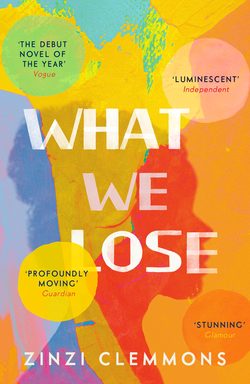Читать книгу What We Lose - Zinzi Clemmons - Страница 18
ОглавлениеTo my cousins and me, American blacks were the epitome of American cool. Blacks were the stars of rap videos, big-name comedians, and actors with their own television shows and world tours. Notorious B.I.G., Puff Daddy, Janet Jackson. Martin Lawrence, Michael Jordan, Halle Berry, Denzel Washington. We worshipped them, and my cousins, especially, looked to the freedom that these stars represented as aspirational. It was a freedom synonymous with democracy, with political freedom—with America itself. It was rarefied, powerful.
But when I called myself black, my cousins looked at me askance. They are what is called coloured in South Africa—mixed race—and my father is light-skinned black. I looked just like my relatives, but calling myself black was wrong to them. Though American blacks were cool, South African blacks were ordinary, yet dangerous. It was something they didn’t want to be.
American blacks were my precarious homeland—because of my light skin and foreign roots, I was never fully accepted by any race. Plus my family had money, and all the black kids in my town came from the poorer areas. I was friends with the kids who lived on my block and were in my honors classes—white kids. I was a strange in-betweener.
Yet my parents always spoke of a strong solidarity with black people in Africa. To call themselves something other than black was to take on the divisions of apartheid that grouped them according to skin tone and afforded them unequal privileges to keep them beholden to the state. They had been unfairly segregated, and it was their wish to live outside these divisions. That was something I absorbed, that never left me as the years went by. But when I expressed this desire outside the house, I was met with confusion and, at the worst, hostility.
At a party during my senior year of high school, when my friends and I were just beginning to drink beer and learn how to be ourselves in the company of these new factors—drunkenness, adulthood—I mentioned, as I often did (I fashioned myself as a politically engaged contrarian in my high school years), that I was the only black person at the party.
“But you’re not, like, a real black person,” a white girl named Anabel said to me, smiling, solicitation in her eyes. I felt ashamed, stunned. Uncomfortable, I said nothing, and after that day I never spoke to her again, indignant, but still unsure how to respond.
That the tragic aspects of American blacks’ legacy are largely visible to the rest of the world is something I realized only later. I can quote our poverty rates, our mortality rates, black-on-black crime, and narrate the story of America’s prison system, which churns black men in and out like assembly-line products.
My naïveté, my feeling of rejection, made my identification all the more strong. I only desired to belong, and I idealized this group as one does a storybook character or a superstar, or anything one doesn’t know firsthand yet loves like an old friend.
